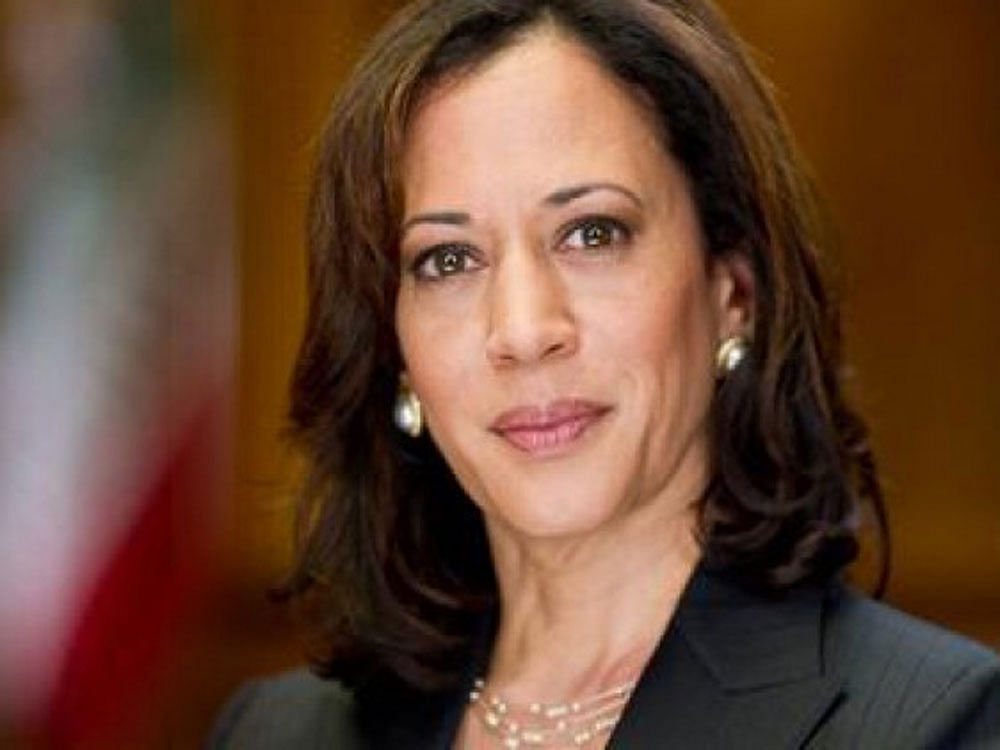
Democrat Kamala Harris played up her experience as a prosecutor on Saturday, telling a mostly black crowd in South Carolina that her prosecutorial credentials have given her a window in to helping improve the criminal justice system and also make her uniquely qualified to take on President Donald Trump.
"We've got to hold this guy accountable by prosecuting the case in front of the American people against four more years of this administration," Harris told a gathering of the state conference of the NAACP. "And I've prosecuted a lot of cases. But rarely one with this much evidence."
In addition to portraying her ability to take on Trump directly, Harris aimed to use the speech in this early-voting state, where the Democratic primary electorate is primarily African American, as a way to explain her prosecutorial experience to anyone potentially skeptical of her background as a district attorney and state attorney general who was tough on crime.
In her campaign rollout earlier this year, Harris said she was ready to defend vulnerabilities related to her legal career.
Criticised by some criminal justice advocates as being too tough on the accused during her tenures as the San Francisco district attorney and California attorney general, Harris answered those criticisms by declaring, "Too many black and brown Americans are locked up" and suggesting she supports reforms.
Echoing that sentiment Saturday, Harris said her motivations have been questioned in the election.
"But my mother used to say, don't let people tell you who you are," she said. "You tell them who you are. So that's what I'm gonna do."
Noting that her love for the law came from an attorney uncle, Harris said Saturday that, like him, she "wanted to be the person who people called for help, to solve their problems, to protect people, and to fix what is wrong."
Speaking before a mostly black crowd of about 750, Harris noted that some within even her own family questioned her decision to become a prosecutor, saying she "had to defend that decision like one would a thesis."
In that, Harris said she knew prosecutors had not always treated black people the same as white people and "looked the other way in the face of police brutality."
But on the job, she said, she saw firsthand that her presence and perspective helped white colleagues see issues more fully.
"So I knew I had to be in those rooms," she said. "We have to be in those rooms even when there aren't many like us there." Harris also addressed black voters directly, saying that she hears their concerns about both safety and criminal justice.
"Everyone wants the police to respond when their home gets burglarized. Everyone wants accountability when a woman is raped, when a child is molested, and when one human being kills another," Harris said.
"What we do want is a justice system where no one is above the law, not even the President of the United States."